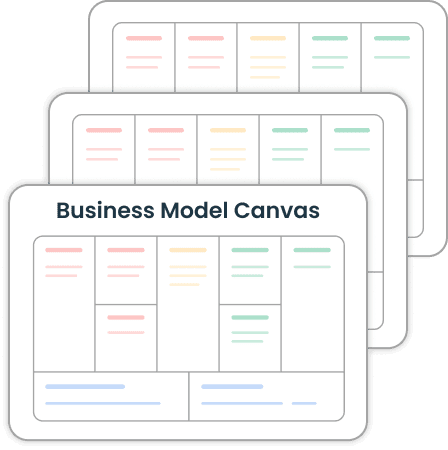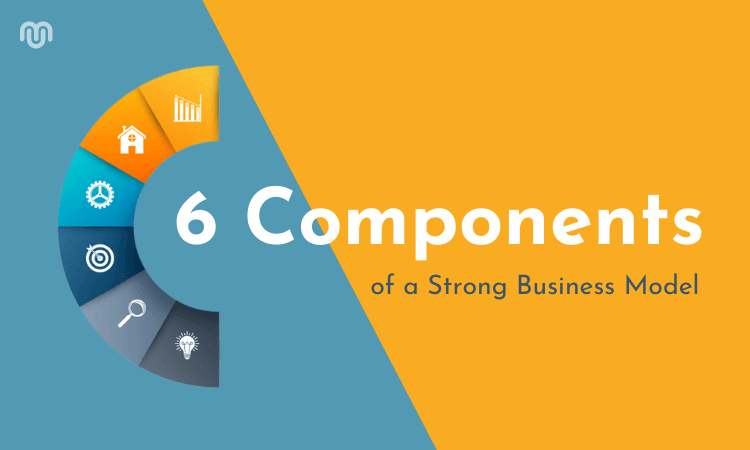In a recent survey conducted by a software company on how useful it is to write a business plan, it was concluded that of those who invested time and resources to write a business plan, 64% were able to grow their businesses, compared to 43 percent of the companies that didn’t. Additionally, entrepreneurs with a professionally written, strong business model were more likely to secure the funding they needed.
We spend a lot of time talking about our business ideas, but if your fundamentals are out of whack, then so is your “great” idea! This usually happens when we are not clear about the goals and visions of our business model and how it is going to impact the lives of millions. An online business plan can take ideas from the entrepreneur, but the related facts are on paper and provide a roadmap to take action.
When it comes to explaining your business model to a potential investor or even to your family and friends to test the waters, it is important to connect your product story with the problems of your target audience that you are going to solve. It is important to ensure that at every level of growth planned for the next five years or so, the experience and quality that you offer to your customers are at par. Only then you will be able to not just write an impressive business plan, but also be able to establish a successful business.
Let’s discuss 6 critical elements of building a strong business model and how you can include these in your pitch deck.
1. Where will your business idea start?
This section of the business model should be a concise overview of your business idea. How did it start? What made you come up with this idea? How passionate are you about this new venture? This is where you are required to step into the shoes of a storyteller and speak about your product and your goals succinctly and accurately. The objective is to draw readers’ attention so they want to learn more about your plan.
2. How will the business model progress?
This is your chance to look into your competition, showcase your industry knowledge and summarize the sales and marketing strategy. Your progress graph should place a detailed analysis of how you plan to grow your business, promote products and enter the market. An explanation of operational plans and SWOT analysis will show that you have considered opportunities and contingencies at all levels.
3. What metrics will help you track the growth?
How do you measure your company’s growth? Running a successful business requires you to develop business metrics, also known as KPIs (Key Performance Indicators). These metrics display a measurable value that indicates the overall success of a company or its business goals. In this section, you’re required to bullet down business metrics that you will track to show how your business is performing in various departments. Since there are hundreds of KPIs to track performance, sticking to the right ones, the ones that suit your business goals, will help add value to your company’s development.
4. How will you create value for customers?
This section of the business model can be summed up in three simple words – What you’re selling?
Include a detailed description of how your product or service is designed to benefit customers. What is the life cycle of your product, how is it different from that of competitors in the market, and how will you acquire your products? Keep in mind that when it comes to writing the product section in the business plan, the focus should be on the benefits that your product or service will be providing and how it will fix a problem for your customers. Be clear and concise. Avoid being too technical while explaining the functionalities of your product. Write as if you are talking to a layman. It should be customer-oriented and service-driven.
5. What channels do you plan to use to market and sell to your customers?
Business is all about bringing a steady stream of customers through various channels that in return allow you to plan and invest better. Depending upon the size of your business, it is important to find the right channels to reach out to your potential customers, and that’s exactly what you are required to cover in this section. While creating a marketing plan, focus on your target market and answer questions like who your customers are. Who are your competitors? What strategies are you likely to implement to set yourself apart from your competitor? Your marketing strategies should propel a direct and dramatic impact on sales, bringing in a healthy stream of traction, as well as revenue. This is where you can win or lose your potential investors while pitching a business idea. So make sure that you highlight all the advantages of pursuing particular activities in this domain.
6. What will be the revenue stream of the business?
This particular section of your business model answers the most important questions – how capable is your business idea to earn its mazuma? In simple terms, how will you make money? This might feel like a game of maze when you are first starting out, but with a bit of brainstorming, you can easily find alternate ways to bring some money into the system to at least keep the business bootstrapped. The revenue model will also help you make the necessary adjustments in strategies and sources of income that work best for your business and industry type.
When done right, a business model lays out clear directions for building a meaningful and profit-generating business. With the right tool, you can easily create a business plan that covers all the essential elements of an effective, investor-worthy business plan.
Click here to start writing a business plan for your next disruptive idea. It’s damn easy and fun!




